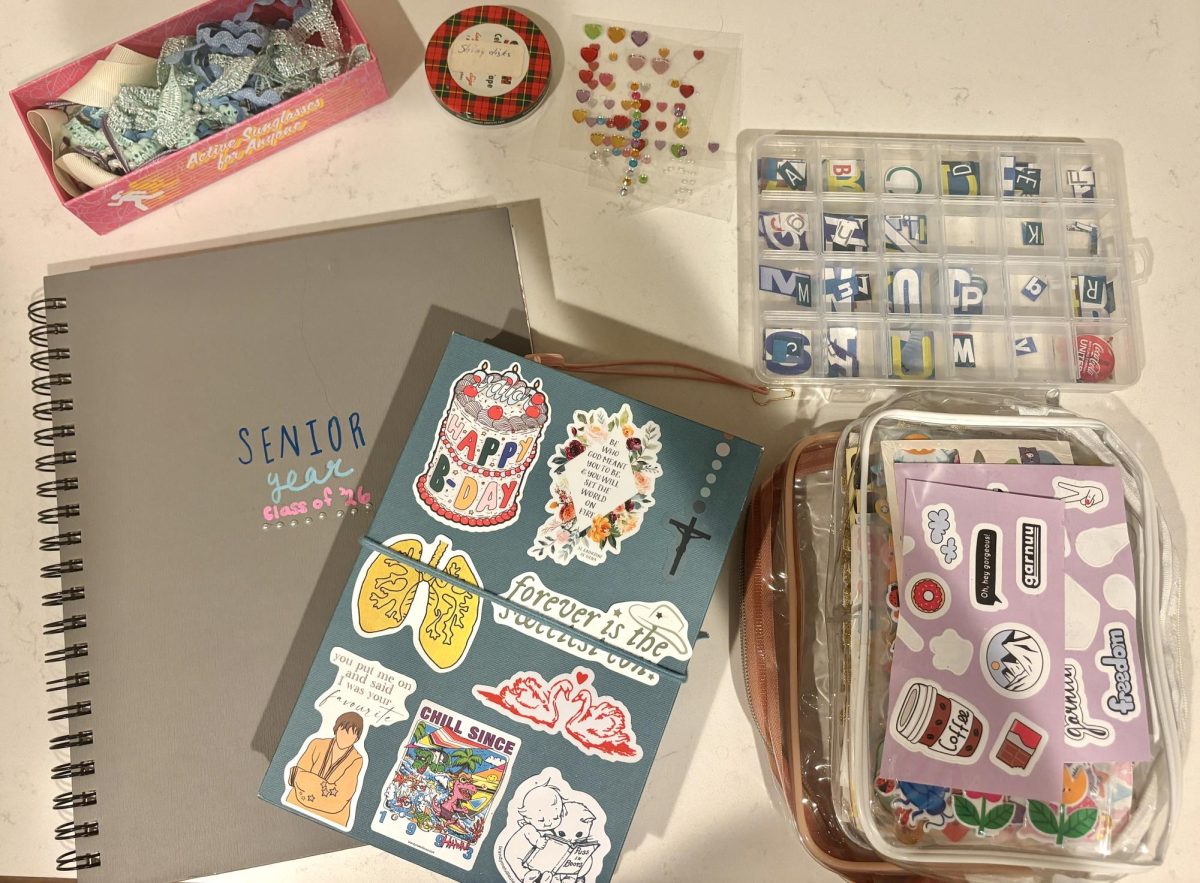A Look at Sexual Assault at Chamblee
May 2, 2022
Trigger Warning: This article discusses sexual assault [SA] and the section titled “Student Stories” discusses rapes of students. Please proceed with caution if you find topics like this triggering. Please respect the privacy of all students discussed or interviewed in this article and respect their personal stories.
April is known as Sexual Assault Awareness Month [SAAM]. The goal of this month is exactly what it sounds like: to expand awareness of sexual assaults that take place all around the world and how citizens can step up to protect each other. It’s also just a chance to talk about the reality of sexual assault.
A few of these stories are told by anonymous women at Chamblee who I will refer to as Medusa and Antiope. The name Medusa was chosen for her powerful story of being a protector of women after being raped by Poseidon. Antiope was another victim of rape in Ancient Greece history who continued to fight for her life. If you’d like to know more of the history behind these names check out these websites Medusa and Antiope.
“Sexual assault is very important to talk about because it is something that is more common than people like to think. […] [SAAM] allows people to understand how to deal with it and how to help others dealing with it,” wrote senior Paige Parker (‘22) when interviewed.
Parker believes that there need to be stronger repercussions when it comes to how sexual assault is handled.
“Because I have no personal experience with SA, there isn’t much more I can add other than it is disgusting and those committing SA should be punished for their actions, NO EXCEPTIONS! SA is something that you should not get a warning for, it is unacceptable,” wrote Parker.
Student Stories
However, sexual assault isn’t just something that happens in April, it happens year-round. In an attempt to notify students of dangers in the community, Georgia State University sent out emails to their students. These emails included information about a suspect who was accused of doing harmful acts to women. Dual enrollment students at GSU have been notified on numerous occasions of dangerous predators on campus.
The notification read, “A Georgia State University student reported that an unknown individual grabbed her clothing and held her buttocks. There were no injuries reported. […] GSU Police Department is actively searching for the suspect and is being investigated by the GSU Police Department.”
Unfortunately, there aren’t always notifications being sent out to watch for dangerous people, especially when they are people that are close to you. According to the Rape, Abuse & Incest National Network (RAINN), eight out of ten sexual assaults are committed by a person the victim knows. Both Antiope and Medusa knew the people involved in their assaults.
“[They were] two juniors, a girl and a boy. The girl set me up with the boy,” said Medusa.
Medusa tells the story of her assault and the aftermath involved.
“He did a bunch of things to me, sexually, and I didn’t like it. He put my head into my bed so I couldn’t scream or speak. I wasn’t able to get up or anything. My bed was ripped out of my wall, from his [aggressiveness],” said Medusa.
Her situation was only made worse once other students started coming up with their own rumors about what they believed really happened that night.
“Other students found out and he covered it up with a different story. And since he’s kind of a popular kid nobody really believes me, because I’m new. Nobody knows me. Everybody knows him as the cool kid,” said Medusa. “I was upset after I heard that people were bringing me down and talking about me in a negative way rather than trying to help me out. [I was upset that people] believed him before even listening to my story.”
Antiope recounted her story about her assault.
“It wasn’t at school but it was nearby. Basically, my ex, [he’s] not a liked person. There was a history. He was not good during our relationship, like terrible. Very emotionally [and] mentally abusive. And so he just coerced me into it and I don’t know, I felt like I couldn’t get out. It didn’t feel like there was anyone there to help, because it was late at night,” said Antiope.
Often, these events remain a secret, but those close to Antiope made them public shortly after.
“My boyfriend went after [my assaulter] and the school found out because they saw [a] video of it. We all got pulled into the office. They’ve been supportive [of] the whole thing like never once did they make me feel bad about it or have been unreasonable,” continued Antiope.
The two women had very different experiences with how others handled their separate situations. After finding out about Antiope’s situation, the Chamblee administration stepped in to help her out.
“This was actually [recently] that [Chamblee’s administration] found out and […] they were all really nice and helpful about it. […] They kept reminding me it wasn’t [my] fault,” said Antiope. “They’ve [continued to be] helpful, [for example my] work. I’m behind now because of just how stressful it was, [… ] they’ve been really lenient, giving me more time for stuff, checking in and making sure that I’m as comfortable as I can be and away from the guy that did it too.”
Even through her pain, Antiope is trying to find the positive aspects of her situation.
“I really never wanted it to get to adults or administrators. I was never planning for it to. But I guess in some ways, it’s good because I also know I’m not the only one he did it to. Maybe the [administration] can help someone in the future. Now that people have stepped in, he might face real consequences,” said Antiope.
However, for Medusa, the situation was different.
“I actually wasn’t even going to school here yet. I was still with my old school doing the online program. I talked to my parents about it, but nothing was really done,” said Medusa.
However, both students agree that the inside of Chamblee High School is safer than the surrounding community.
“I think within the school itself, it’s pretty safe because the administrators, [but] the community around, not really. Obviously, there is the police and stuff but the reality is they can’t do a lot. Yeah, they will try to help but they can’t protect against everyone,” said Antiope.
Safety Advice
Also included in the email from GSU were some safety tips, found below.
- Please be aware of your surroundings… and call GSUPD if you notice suspicious people or activity.
- Please walk in groups of two or more when walking around campus and continue to stay vigilant and aware of your surroundings.
- You may request a safety escort on campus by calling the GSU Police at 404-413-2100 or use the LiveSafe app so a police officer or a security guard walks you to your destination.
- Please contact Crime Prevention at 404-413-3213 for Safety Tips and Safety Programs.
Some other basic tips include:
- Join a Life360 circle (or any tracking app) with a trusted group of people. Apps like this aren’t just for parents. You can share your location with your best friends or close family members.
- Check license plate numbers on rideshare apps such as Uber and Lyft and watch the route the car takes as they drive.
- Always lock your doors, including car doors, as soon you get inside.
- Carry pepper spray in areas where it’s legal. It is not allowed on school property.
- Keep your purse/wallet close to your body, having cross-body purse straps prevents muggers from being able to grab it and run. Keep your wallet in your front pocket.
- If someone does get your purse/wallet, let them have it, you don’t know how dangerous they may be. You are more important than your items.
- Try to only use one earbud at a time or none at all in an unfamiliar place.
- If you ever feel uncomfortable in a public place, find another person and explain the situation, they may be able to help walk you to your car or hide you.
- Know the safe places around your community, most have signs outside. This means you can hide here in an emergency while a trained professional will alert authorities. The YMCA and QuikTrip are just two of the places that have these.
Now with so much of our lives being online, it’s also important to stay safe online. We often don’t realize how much our personal information is out for others, or stalkers, to find.
- It’s best to set your accounts to private, but if you don’t, make sure you don’t share too much of your personal information on the website.
- Have a fake name, email, phone number, or social media handle on hand just in case someone is trying to get one from you in public. That way you can answer their question and leave before they can continue to ask you things.
- Try to keep your age and general location out of conversations when it’s not necessary.
- Avoid giving out your parents’ names. This can allow people with bad intentions to get a lot of information about you and your family.
- If you ever plan on online dating or meeting someone you met online, do it somewhere in public and allow all your trusted people to know where you are.
Self Defense
Sexual Assault Awareness Month [SAAM] is the chance for schools, public communities, and the government to work on ways to better keep their community safe. Many dojos around the area also offer self-defense classes during this time. This is a chance for students to learn how to protect themselves in dangerous situations.
“I took the self-defense class because my parents signed me up; I think it was at the beginning of high school or late middle school. They thought that since I was getting older it could teach me some helpful things to know if I was ever in a tough situation, which was more likely since I was becoming more independent,” wrote Parker.
Outside of basic tips, it’s always imperative that students continue to stay aware of sexual assault and the steps they can take to help keep themselves safe. That’s why a lot of Chamblee students have taken self-defense courses.
“I took [a self-defense course] at a nearby church, I think it was Dunwoody church with Revved Up Kids. They went through different procedures, [on] how you could attack someone,” said Antiope. “We learned eye jabbing […] and then ears, shins, feet. They just went through all the different ways [to attack someone.] We used a [punching] dummy sort of thing. We learned this safe word, ‘fire.’ They said to yell that because it gets people’s attention.”
During these courses, students learned helpful tips like yelling, “Fire,” or not to run in certain situations.
“It’s best to try to stay calm rather than be intimidated or try to fight back,” said Antiope.
Areas around Chamblee often offer opportunities for students to learn how to protect themselves in dangerous situations. Some enroll by themselves; others are enrolled by their guardian.
“My parents made me [take the self-defense class] for the most part. I also [thought] it was good, because [of] how society is. A lot of times women can be targeted. I thought it might help me if I were in a situation like that, just because I knew nothing. I don’t know what I would have done in one of those situations before I took [the class],” said Antiope.
These courses were really helpful for students to learn new and surprising facts about sexual assault. Parker’s course taught her a wide range of defense tactics.
“Some helpful things I learned in the course was how to ‘properly’ hit someone in self-defense. We got in a line and would take turns ear-clapping or kneeing a dummy in the crotch. They also showed us some things we might need if we are alone and a situation arises; I remember them showing us pepper spray and key chains they especially made for self-defense,” wrote Parker.
“I also liked the variety of stuff they taught us [to do in] different situations, like if your arms are restrained, if your feet are restrained, or if your mouth is taped,” said Antiope.
However, this training can only do so much.
“I think it’s important to mention that although courses like that can be helpful when put in dangerous situations, sexual assault/coercion can still be mental. Unfortunately, techniques to defend yourself wouldn’t necessarily be helpful in those circumstances so although they are still important, the harsh reality is they can’t always help you,” said Antiope.
For those interested in taking self-defense courses, you can find locations close to you below.
Chamblee Police Self Defense course- Free (for Women)
There are many places to buy rape alarms and small self-defense weapons as well, such as Walmart, security-specific stores, and online on sites such as Etsy and Amazon.
The Blue & Gold reached out to the counseling department regarding what to do when situations like these occur.
“A student can self-report directly to a counselor or a teacher. If the student reports to the teacher then the teacher must report to the counselor,” wrote guidance counselor Wylene Ward-Claudman.
Stories like Medusa and Antiope’s are far from uncommon but often hidden due to the pain and shame surrounding them. The Blue & Gold hopes by giving them space to share their thoughts we can be part of the change we hope to see in the world. Please do not try and pry into the personal lives of anyone mentioned to any degree in this article.











